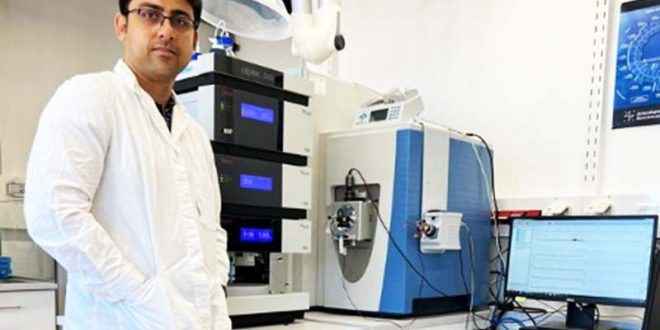Dr. Arindam Ghatak from the University of Vienna has carried out high-throughput proteomics profiling of the Desiree potato variety to obtain an unbiased comprehensive picture of the alterations in the potato proteome (the sum of all proteins present) in response to various stress situations.
The plants were cultivated in a pilot experiment at the Czech Republic-based PSI, a project partner.
All proteins were isolated and pre-fractionated for this intricate examination before being digested and subjected to mass spectrometry, which allows for the detection of hundreds of different proteins in a single sample and, additionally, the quantification of their abundance. The Proteome Discoverer software was then used to analyze the collected data (Thermo, Germany). The proteins were identified using the Solanum internal curated database (generated by NIB Institute, Ljubljana, Slovenia).
From harvest 1 (one day after stress) and harvest 3 in total, 10341 proteins were found (8 days after stress). In harvest 1, the waterlogging stress was where the highest proteome modulation was seen. Here, proteins involved in signaling, lipid metabolism, and RNA binding showed increased activity in comparison to controls. Similarly, during heat stress compared to controls, proteins involved in photosynthesis and secondary metabolism were increased, revealing the proteome’s stress response mechanism.
In line with harvest 1, harvest 3 also showed that waterlogging stress, heat, and the combined effects of heat and drought were the stresses that identified the strongest proteome regulation. In comparison to controls and other stresses, 14-3-3 signaling was elevated under the waterlogging stress, which affects proteins classified as belonging to the functional category of energy metabolism.
“Based on the preliminary identification, waterlogging and heat stress demonstrated the strongest regulation at the proteome level compared to other stresses. However, it will be interesting to look at the proteome of the recovery phase compared to other harvest time points, especially during drought stress. More data mining is ongoing to obtain in-depth information regarding the plants’ stress response mechanisms and recovery phase in the potato variety Desiree,” the scientists wrote.
The Horizon 2020 EU project Accelerated Development of multiple-stress tolerAnt PoTato (ADAPT), in which Europatat is participating, aims at developing new strategies to make potatoes fit for the challenging growing conditions of the future.
One of the main objectives of the project is to investigate potato morphological, physiological, biochemical, and molecular changes in response to single and combined heat, drought, and waterlogging stress by applying high throughput phenotyping and OMICS technologies (genomics, transcriptomics, proteomics, or metabolomics).
A source: https://www.potatobusiness.com







